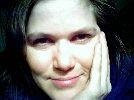The following represents my response to The Paradox of Fiction as presented in this article: http://www.iep.utm.edu/fict-par/ (bolded type are quoted from the article)
A paradox is something that conflicts with itself.
Fiction is a creation that has been imagined and does not represent reality.
Based on "Replies From My Critics" by Colin Radford:
Fiction conflicts with itself when we are emotionally moved by something that is fake. Emotional response to fiction is irrational.
1. We have to believe the fiction can exist or has existed.
2. "Existence Beliefs" aren't present when we read what we know is fiction.
3. Fictional Characters are capable of moving us.
Do we use our imagination to believe in fiction?
Are the emotions we feel fake?
(Stanislovsky taught using emotions from previous real events to appear to feel the same emotion in a fictional event "Emoting")
Some solutions:
1. Our emotional responses to fiction are "make-believe".
2. "existence beliefs" aren't necessary for emotional response.
3. There is nothing wrong with having an emotional response to something that becomes an illusion of reality.
Colin Radford believes, our ability to respond emotionally to fictional characters and events is “irrational, incoherent, and inconsistent”
I disagree, when we can relate to fiction, it's by recalling similar real experience, the emotions we invoke are real, rational responses, although this may occur on a subconscious level, where we are not aware of it, I don't believe it is as inconsistent as Radford says.
Believing that emotions are recalled from past experience, makes "existence beliefs" unnecessary, even when we knowingly participate in fiction (reading, watching) we are still reminded of how we've felt in the past, in similar situations, and so it appears we are responding to the fiction, when in fact we are responding to our own experiences or memories of real events in our past. (Heartbreak, Death, Clumsiness, Childbirth)
Childbirth is a great example, the emotions run the gammet, from fear and anxiety, to joy and rapture, before I had children, viewing a fictional childbirth somehow meant unbearable pain to me, it was equivalent to watching a guy being kicked in the balls, I had no experience so, although I could imagine pain, I only knew from what I had been told. Pain, dizzy, nauseous. Now to witness childbirth, whether fictional or in reality (ty TLC), I experience the wider range of emotional response, it isn't because I believe that the woman in the fiction is actually giving birth, it's because I have experienced it myself
I believe then, that we are not forgetting that what we are witnessing is fiction.. otherwise, along with the emotional response, we would feel a need to act, to help in some way. And in the case of horror films, I don't think the emotion we are feeling when the monster appears is truly fear, it is almost always summoned by or lead up to by creepy music and then startling us... are we afraid? Or surprised? The only fear I've taken away from fiction is when the monster is satanic, something I believe can occur in reality. (oops, existence belief) I don't think that's irrational or inconsistent.
Our responses to fictional works can seem exaggerated compared to responses to reality, because in reality we exercise restraint, if we are disgusted but don't want to appear judgmental, if we are grieving but want to appear strong, if we are entertained by something others find repugnant.
Why do we classify fictional films/books into different genres? (romantic-comedy, action-adventure, science-fiction). It's because we choose them based on how we want to feel. The strongest emotional reaction I've ever experienced to fiction, was my response to "Cape Fear" http://www.imdb.com/title/tt0101540/plotsummary , I can't remember much about the film itself, I only recall walking out of the theatre enraged at how it ended, and then suddenly coming to the understanding that perhaps that is what the Screen-Writer/Director intended for me to feel, I felt manipulated.
How can you say that emotions are consciously imagined "The Pretend Theory", when after seeing a movie where the bad guy breaks into a car and is hiding in the back seat, you exit the theatre in the dark, examining the back seat before you get into your car? Glenn Hartz's argument against Kendall Walton's "Pretend Theory" is "not that our responses to fiction are independent of belief, to be understood on the model of the startle effect, but that they are pre-conscious: that real (as opposed to pretend) beliefs which are not consciously entertained are automatically generated by certain visual stimuli. The adrenaline and cortisol are real."
"Arguing on behalf of the Thought Theory,
In conclusion, I believe that our emotional responses to fiction are drawn from and relative to our own personal experience, real emotions invoked not by imagination but by recollection. The fiction more of a catalyst than a paradoxical question.
